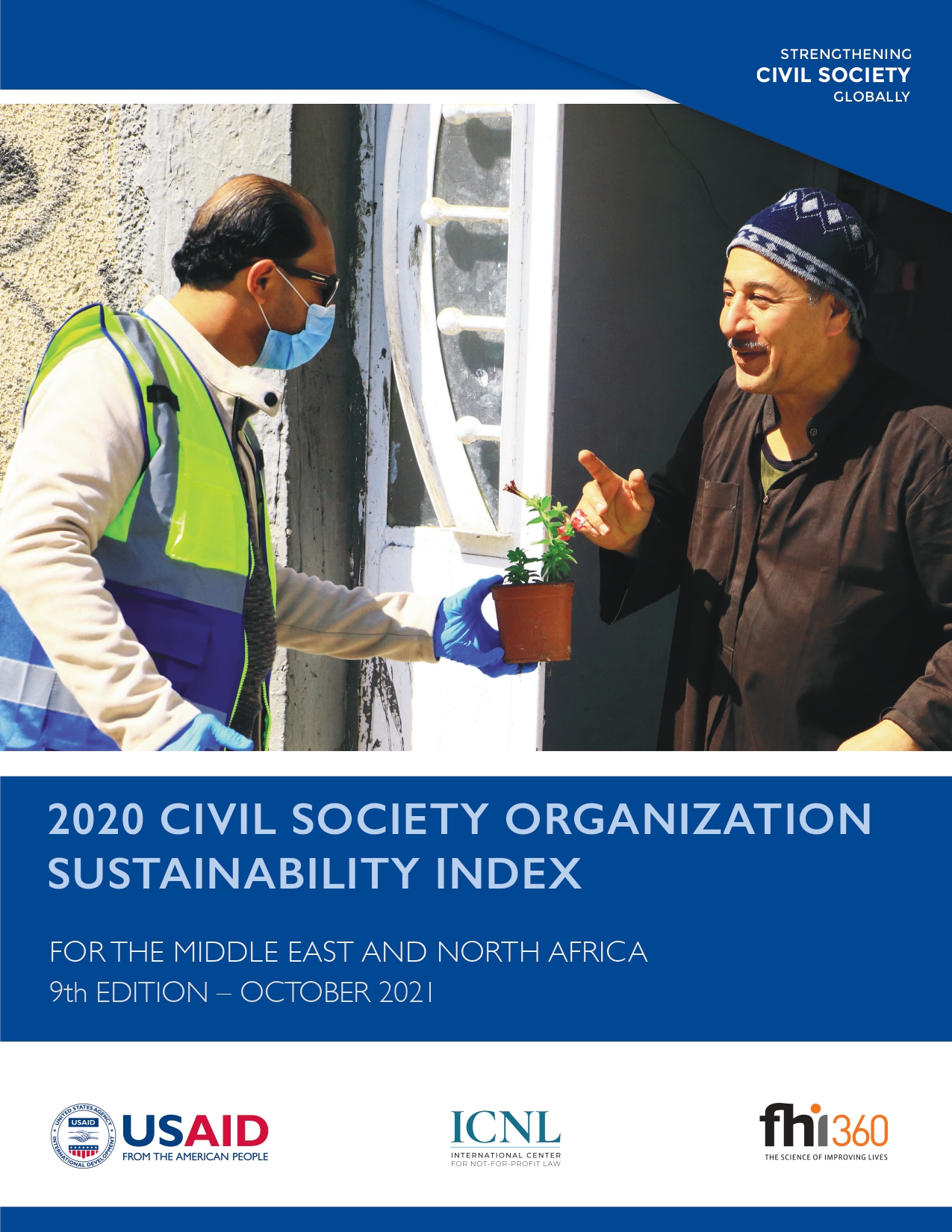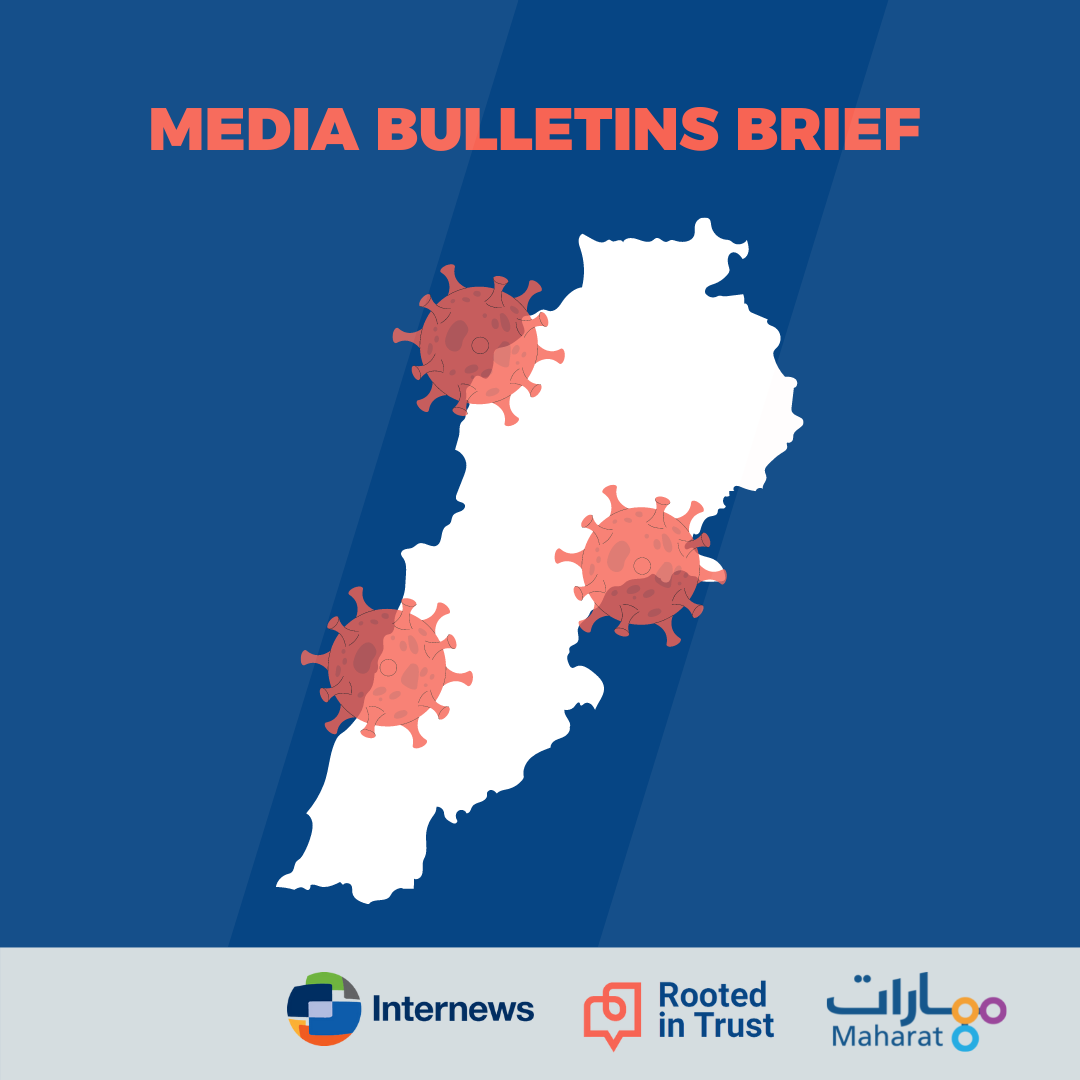
CSO Sustainability in Lebanon maintains its level in 2020
The overall sustainability of the CSO sector in Lebanon remained unchanged in 2020, leaving Lebanon at 3.9 since 2019, the highest-level index compared to the other 7 countries Egypt, Iraq, Jordan, Libya, Morocco, Tunisia and Yemen, despite a deterioration observed in most dimensions and aspects.
The legal environment governing civil society organizations has deteriorated this year, with the registration process for new civil society organizations becoming more complex. Political activists, in particular, have faced lengthy delays and even rejection when trying to register new organizations. As to the decline of freedom of expression and excessive use of force against protesters contributed to reducing civic space in the country.
CSOs also faced new challenges in the wake of the Beirut port explosion. The state of emergency imposed the day after the explosion gave the Lebanese army the authority to manage the response to the explosion. Therefore, civil society organizations had to obtain permission from the army for all interventions, and some recognized that state and military intervention hindered their work. Additional restrictions have also been imposed on all bank accounts, even for registered civil society organizations, as a result of strict extra-legal capital control measures and discretionary regulations governing the deposit and withdrawal of funds.
In terms of organizational capacity, it has fallen slightly in 2020 to 4.1. The economic crisis, the pandemic, the devaluation of the national currency, and several factors have adversely affected the capacity of CSOs in adhering to their strategic and organizational goals and maintaining their staff. The inability to implement activities and meetings on the ground has also negatively affected the efforts of some civil society organizations to engage effectively with their constituencies. At the same time, the technical progress of organizations has improved, with many successfully transforming their work online.
On the level of financial sustainability and with an index of 5.1, the viability of CSOs in 2020 declined due to deteriorating economic conditions and increased demand for assistance despite a significant increase in foreign aid. The banking crisis further aggravated the situation, and civil society organizations were unable to open or access their accounts, while competing with currency fluctuations and inflation. It has also had to change its financial procedures due to uncertainty in the banking sector and the successive economic and financial crises facing the country.
In another dimension, the advocacy of civil society organizations remained unchanged in 2020. Despite the inability of civil society organizations dealing with legislators and the growing gap between civil society, government officials, showed the sector increased solidarity successfully led a number of efforts of the important campaigns. Despite the challenges, civil society organizations have achieved some major successes, including the issuance of decrees to implement the access to information and the elimination of bank secrecy.
With an index of 3.3, the level of service provision increased slightly, with civil society organizations providing a wide range of services in response to the various health, economic and political crises facing the country.
Although communication and alliances between civil society organizations have increased, the overall infrastructure that supports this sector has deteriorated. While a number of training opportunities on topics such as report writing, fundraising, and financial procedures, compliance and policies, social media and digital services are offered to CSOs, but not all can have access to this training. And even some of them don't know how to determine his needs.
As for the public image of CSOs, it has not changed this year. However, despite improved public perceptions, CSOs remained the target of some defamation campaigns and access to the media became more difficult. In addition, the relations of CSOs with the government have been strained as a result of the increased visibility of organizations during crises, which often overshadowed the role of the government.
To read the full report:
2020 Civil Society Organization Sustainability Index for the MENA





